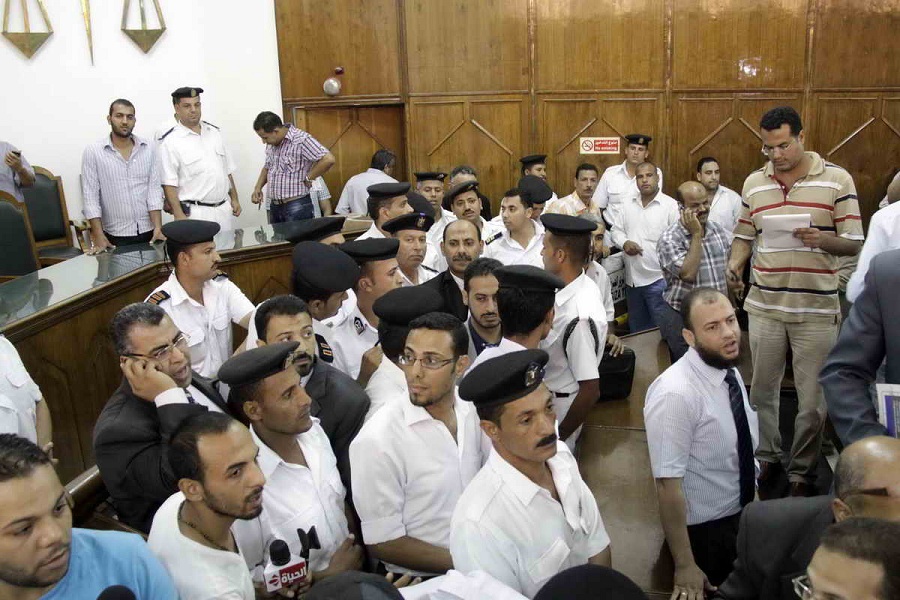
Mohamed Omar
The Administrative Judiciary Court postponed on Tuesday a court case calling for the dissolution of the Muslim Brotherhood. The case has been delayed until 9 October. Opponents of the Brotherhood have long attacked its lack of licence or legal standing.
The case, which is spearheaded by former member of parliament Hamdy Al-Fakharany, calls for the dissolution of the Brotherhood, the closing down of its headquarters, and the confiscation of its funds on the basis that the organisation is illegal.
“The group has refrained from fully disclosing itself. All we want is for the group to be legitimate, especially since we are under the reign of a president that belongs to it,” Al-Fakharany said.
According to Al-Fakharany, the Brotherhood had always refrained from legalising its status during the era of former President Hosni Mubarak, arguing that if it were registered, that registration could be used against it and the regime could crack down on it, by suspending its licence or banning it.
“Now Mubarak is gone and you are in power, so what is stopping you from obtaining proper licensing and becoming a legal entity,” he added, addressing the Brotherhood.
Brotherhood officials and lawyers have repeatedly argued that they need not register the group simply because there is no law they can register under.
There have been four Non Governmental Organisation laws since 1954 and the Brotherhood has not complied with any of them. The group argues that the laws exist for societies, associations, institutions, and organisations, of which, they say, the Brotherhood is none.
“When there is a law for groups, the Brotherhood will comply with it immediately,” Brotherhood lawyer Abdel-Moniem Abd Al-Maqsoud told the Daily News Egypt in July.
Al- Fakharany disagreed with this sentiment. He said that a group and a society were the same thing.
“There are 42 thousand groups and societies, two of which I am president of, in Egypt and they are all registered with the state,” he said.
“The problem is that the Brotherhood thinks it is better than us, than all of Egyptians,” he added.
Brotherhood leader and Freedom and Justice Party legal advisor Ahmed Abu Baraka said the case against the group was unfounded.
“The group does not receive state funding or collect donations so there is no legal obligation for it to register as anything,” he said.
Abd Al-Maqsoud elaborated on Abu Baraka’s point and told journalists outside the courthouse that the Brotherhood’s only source of funding comes from administrative fees and donations paid by its own members and that it does not receive funding from any entities.
“If anyone has evidence that the Brotherhood receives any form of external funding they can file a case with the public prosecutor,” he said.
The Brotherhood faced a similar case in July, which was based on the fact that former president, Gamal Abdel Nasser, had dissolved the group in 1954, thus making it illegal.
The court ruled that Nasser’s decision was not legally binding as it was neither a law nor a presidential decree, and that the Brotherhood was thus legal and constitutionally sound.


